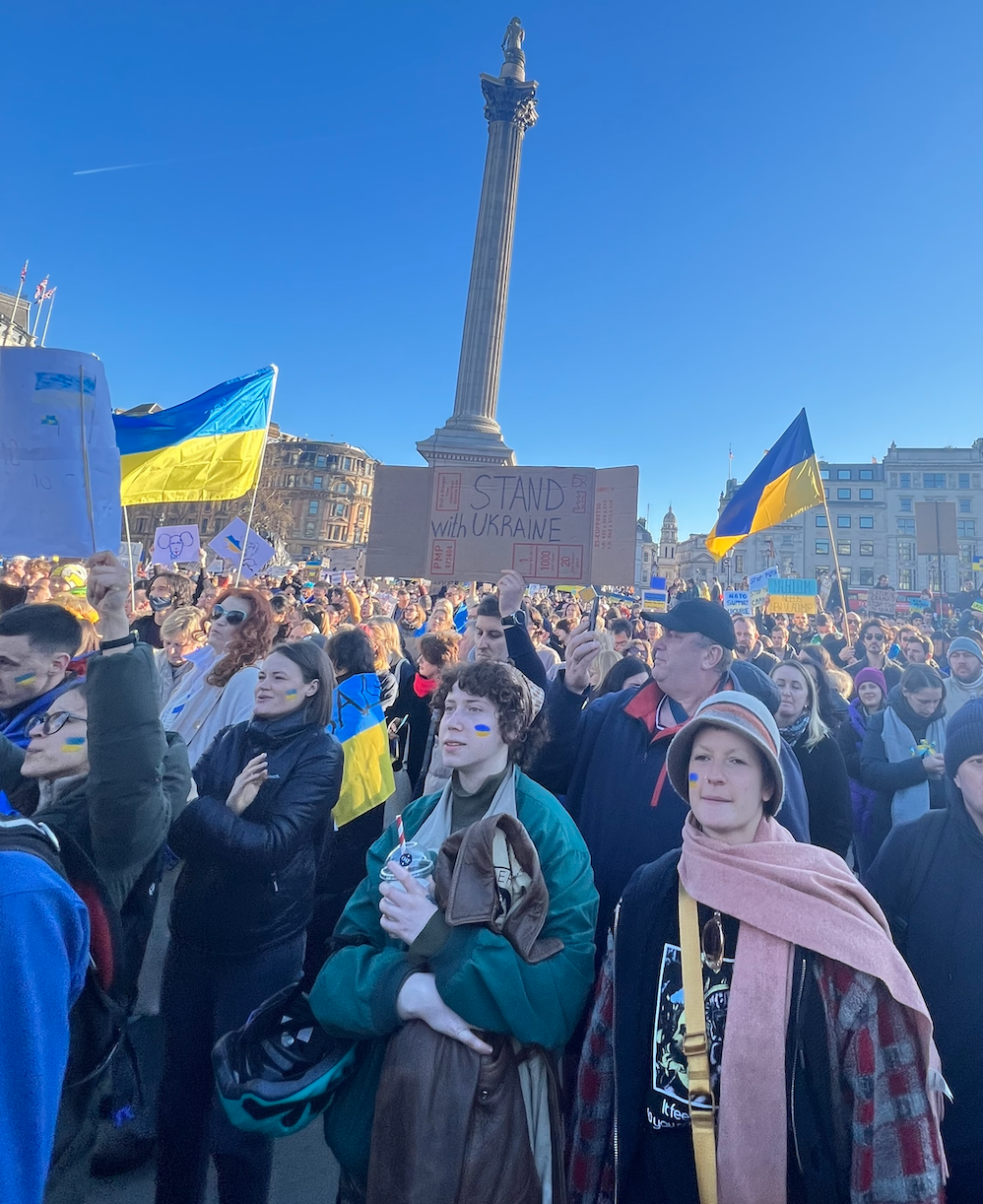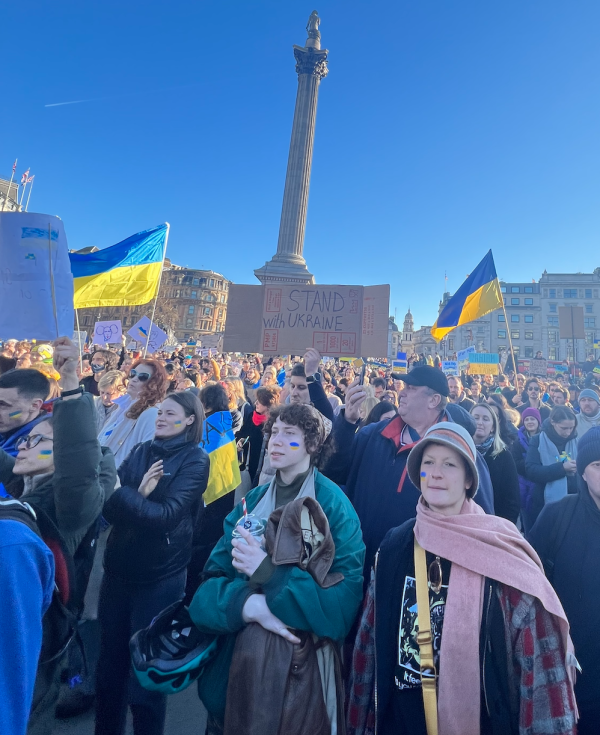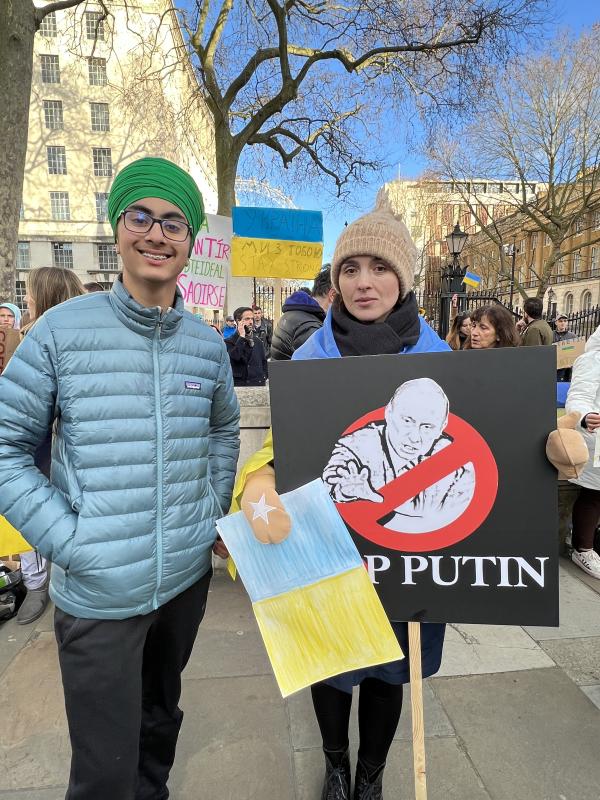KID REPORTERS’ NOTEBOOK
In London, Fear for Ukraine


Thousands of protesters gather at Trafalgar Square in London to show their support for Ukraine, an Eastern European country that has been attacked and occupied by Russian forces.
On February 24, Russia launched an invasion of Ukraine, an Eastern European country of 44 million people. Ukraine is bordered by Russia, as well as Hungary, Poland, Romania, and other countries were once under the control of the Soviet Union. Over the course of several months, Russia had assembled nearly 150,000 troops on its border with Ukraine and in neighboring Belarus.
Russia’s invasion has been met by strong resistance from the Ukrainian military. The United States and countries in Western Europe have imposed harsh economic sanctions on Russia. The U.S. and others are also sending military aid to Ukraine.
Many people wonder about Putin’s ultimate objective. He has been President of Russia since 2012, a post he had held earlier. His leadership has been marked by crackdowns on human rights and systemic government corruption.
“While Putin is destroying Ukraine right now, who’s going to be next? Poland, Estonia, Latvia?” said Jenny Klochko, a resident of London who is originally from Ukraine. I spoke with Jenny during a recent visit to England. She was attending an anti-war protest near 10 Downing Street, the residence of the British Prime Minister.

Munveer with Jenny Klochko, a resident of London who is originally from Ukraine, at an anti-war protest near 10 Downing Street
ARE SANCTIONS ENOUGH?
In an effort to stop Putin, select Russian banks have been removed from the SWIFT global banking system, which is vital for modern-day banking. The sanctions have already started to affect Russian currency. Since the war started, the ruble has lost nearly half of its value.
Additionally, on March 8, U.S. President Joseph R. Biden issued a ban on all Russian energy imports to the United States. Oil and gas are an important source of income for Russia.
But many people fear that such measures won’t be enough to stop Putin. “Sanctions against the general population of Russia would not be as effective,” said a 20-year-old Russian woman from London who didn’t want to give her name. “They’re already scared to go out on the streets because as soon as they protest, they get grabbed and thrown in prison.” Despite these threats, thousands of people in Russia have marched against the war.
“WE ARE UKRAINIANS”
Putin has continued the attacks on Ukraine, falsely claiming that they are led by “neo-Nazis,” or violent white supremacists, and a threat to Russia’s security. The conflict has forced more than 2 million people to flee the country, half of them children. It is the largest number of displaced people in Europe since the end of World War II in 1945.
Fear can be felt across Ukraine, as desperate residents clog roads and trains, waiting in long lines to get into neighboring Poland and Hungary, among other countries. People on the borders are helping refugees find food and shelter.
“My whole family is in Ukraine—my mother, my brother, my father, and my granny,” said Alyona Smirnova, who took part in the protest near 10 Downing Street. “I’m super scared for them.”
Despite the fear and uncertainty, Ukrainians are holding firm. They say that there is no truth to Putin’s claim that Ukraine is an illegitimate country carved out of Russia.
"We are not Russians, we are Ukrainians,” Klochko said. “We have our own culture and history. Don’t try to turn us into something we’re not.”
